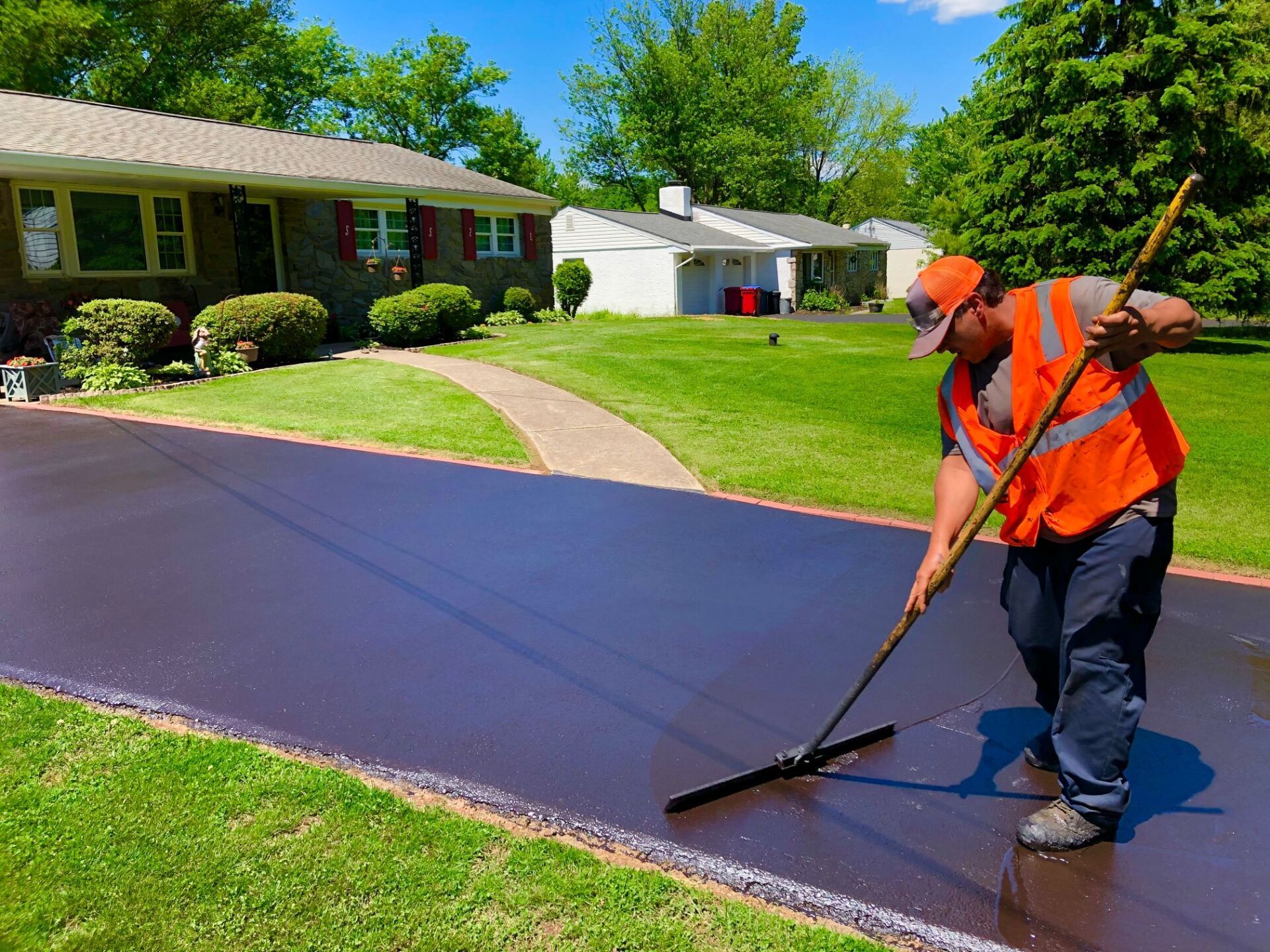Protect Surface Areas with Expert Asphalt Sealing: Cold Mix Basics
Protect Surface Areas with Expert Asphalt Sealing: Cold Mix Basics
Blog Article
Cold Mix Asphalt Vs. Hot Mix Asphalt: Which Is Right for You?

Composition Distinctions
Cold mix asphalt is produced by emulsifying the asphalt binder with water and an emulsifying agent before mixing it with accumulation. The warm mix asphalt manufacturing procedure entails heating up the accumulation and asphalt binder independently prior to integrating them at the asphalt plant.
In addition, cool mix asphalt often tends to be much less thick and a lot more versatile than warm mix asphalt. This versatility makes it much better fit for areas with higher degrees of activity, such as driveways or roadways with hefty web traffic. In contrast, hot mix asphalt is known for its high resilience and resistance to rutting and breaking, making it a preferred selection for freeways and high-traffic roads where longevity is crucial.
Installation Refine Variations
The process of installing cool mix and warm mix asphalt exhibits notable differences in their requirements and treatments. Cold mix asphalt, being a much more flexible product, can be used directly from the bag or container onto the gap or damaged location. It needs minimal preparation job, such as cleaning up the area and condensing the cold blend with hand tools. This makes it a convenient alternative for quick and short-lived solutions. In contrast, warm mix asphalt requires a more sophisticated installment procedure. It involves warming the mix to high temperature levels before laying it down on a properly ready base. The preparation consists of condensing the base, applying a tack layer, and using hefty equipment like pavers and compactors for a smooth and resilient finish. Because of the home heating demands, warm mix asphalt setups are typically performed by professionals with specific tools, guaranteeing an extra permanent and structurally audio outcome.
Sturdiness and Longevity Factors
When taking into consideration asphalt options, sturdiness and long life are vital factors to review for lasting pavement efficiency,. Warm mix asphalt (HMA) is known for its remarkable toughness and durability. The heats during the laying and blending procedure permit far better compaction, causing a denser and stronger sidewalk structure. This brings about HMA being much more immune to rush hour tons, rough weather, and the results of aging contrasted to navigate to this website cool mix asphalt (CMA)
In terms of long life, HMA generally outshines CMA as go to this website a result of its exceptional stamina and resistance residential properties. HMA pavements have a longer service life, needing much less regular repair services and maintenance, which can equate to cost savings in the lengthy run. Additionally, HMA sidewalks are much more conveniently adjustable to fulfill particular task demands, even more enhancing their toughness.
Cost Factors To Consider
Considering the financial effects is an essential element when examining the choice in between warm mix asphalt (HMA) and cold mix asphalt (CMA) for sidewalk tasks. While the initial price of hot mix asphalt is usually greater than that of chilly mix asphalt, HMA typically provides an extra affordable remedy in the lengthy run due to its premium durability and durability.
In addition to product expenses, it's essential to think about the expenditures linked with installment and upkeep when comparing HMA and CMA. Ultimately, the decision between HMA and CMA must take right into account not simply the preliminary expense but additionally the long-term monetary effects to determine the most economical alternative for the particular pavement project.
Environmental Impact Comparison
Contrast of the ecological effects between warm mix asphalt (HMA) and chilly mix asphalt (CMA) reveals distinct differences in sustainability methods. HMA production calls for high temperature levels, leading to increased energy usage and greenhouse gas exhausts.
Moreover, the use of CMA frequently entails reusing existing asphalt sidewalk, promoting source preservation and reducing the quantity of waste sent to landfills. This recycling facet additionally enhances the sustainability of CMA contrasted to HMA. Generally, when considering the ecological effect, CMA becomes an extra ecologically lasting option because of its reduced power demands, decreased exhausts, and the potential for reusing existing products. By deciding for CMA over HMA, roadway construction tasks can add favorably to ecological conservation efforts.
Verdict
Finally, the option between chilly mix asphalt (CMA) and warm mix asphalt (HMA) relies on different elements such as composition, installation process, durability, durability, expense, and ecological impact. asphalt patch repair. While CMA provides a fast and affordable option for small repairs, HMA makes sure remarkable toughness and durability for rush hour areas. Consider these variables carefully to identify which kind of asphalt is the best option for your paving requires

Considering the financial ramifications is a critical element when evaluating the option between hot mix asphalt from this source (HMA) and cool mix asphalt (CMA) for pavement jobs. While the preliminary cost of warm mix asphalt is generally higher than that of cool mix asphalt, HMA typically gives an extra economical service in the long run due to its superior sturdiness and durability. angle parking.Comparison of the environmental influences between warm mix asphalt (HMA) and chilly mix asphalt (CMA) exposes distinct distinctions in sustainability practices.In final thought, the choice in between cool mix asphalt (CMA) and warm mix asphalt (HMA) depends on various elements such as composition, setup procedure, durability, durability, expense, and environmental influence
Report this page